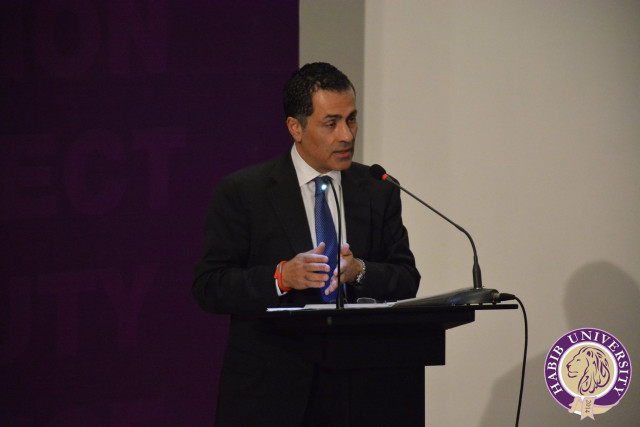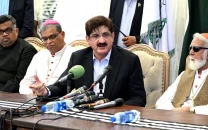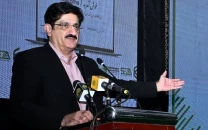What causes violence in South Asia? It's all about identity, says Dr Vali Nasr
Expert on the Middle East and the Islamic World speaks at Habib University

A leading academic on Middle East and the Islamic World, Dr Nasr spoke to The Express Tribune shortly before his talk on 'The Growing Role of Sectarianism in Muslim Politics, Globally and in Pakistan' at Habib University on Saturday.
Nasr has a strong connection with Pakistan, where he worked as part of his PhD research. "Coming to Pakistan is like a home coming," he said. He is calm, yet candid, when he talks about the schism between Shias and Sunnis. "Sectarianism is the oldest conflict," he said, adding that the desire of one community to exert power and dominance over another is in no way restricted to the Sunni-Shia conflict. "This is about power; this is about hegemony."
Drawing a backdrop to understanding the present-day global politics, the rise of militancy, the difference between Islam and Islamism and the issues Pakistan is facing, Nasr explained to a packed auditorium the problems and the possible solutions. "Unfortunately, the dominant discourse in the Muslim world does not promote pluralism," he said, talking about why religion becomes puritanical, and is seen as black and white with the belief that only one interpretation is correct.
Therein, according to Nasr, lies the root of sectarianism. "Modernity and reformation in the Muslim world today is much less tolerant than tradition was," he said. "Those who talk of modernity today want to jump from tradition to liberal secularism. Where is the historical process for this?"
When asked a question about the rise of extremism in Pakistan, he said: "When the rich become disconnected with the poor, the poor turn to the clerics."
In Nasr's opinion, the strain between Pakistan and India is not just Kashmir. "Pakistan is still toying with various ideas of identity, whereas India has still not reconciled to the idea of Pakistan," he said. He also spoke about Lahore and Karachi in the 1940s as places with pluralistic societies in this region. In his opinion, the solution to sectarianism in the region will have to be through strong will and determination at all levels of society.
Published in The Express Tribune, November 23rd, 2014.



















COMMENTS
Comments are moderated and generally will be posted if they are on-topic and not abusive.
For more information, please see our Comments FAQ